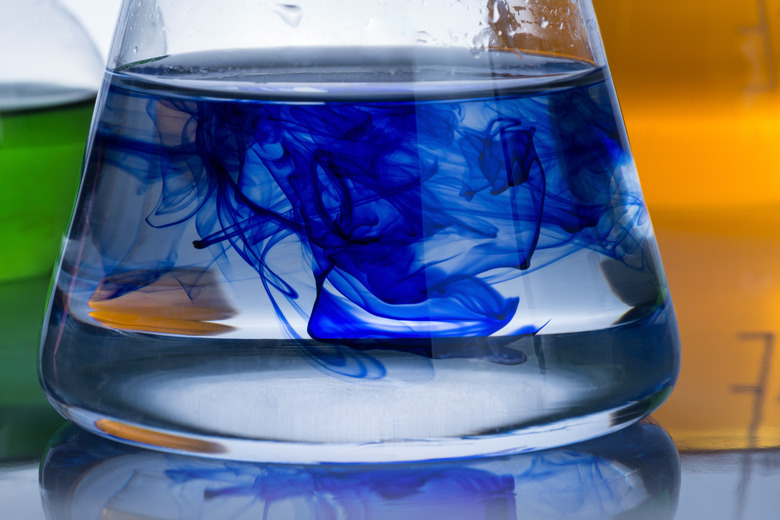How To Calculate The Final Temperature Of A Mixture
One of the primary laws of physics is the conservation of energy. You can see an example of this law in operations by mixing two liquids at different temperature and calculating the final temperature. Check the final temperature achieved in the mixture against your calculations. The answer should be the same if you assume that no energy was lost to the environment. The practical answer is different from the one you calculated because some heat is in fact lost to the surroundings. Look at how the calculation is performed, assuming that you mix two containers of water at different temperatures together.
Step 1
Weigh the amount of water in the first small container by the difference method. Weigh the first container on the balance and record its weight. Pour a defined amount of water into the first container and reweigh the container. Record the second weight. Subtract the two weights to find how much water you have before mixing in container 1.
Step 2
Repeat weighing the water for the second small container, also by the difference method. Record its weight.
Step 3
Measure the temperature of each container using a thermometer. Record the temperature by container number.
Step 4
Mix the two containers into a large container and allow the water temperature to reach a steady value. Record the final temperature using the thermometer.
Step 5
Calculate the final temperature of the water mixture using the equation T(final) = (m1_T1 + m2_T2) / (m1 + m2), where m1 and m2 are the weights of the water in the first and second containers, T1 is the temperature of the water in the first container and T2 is the temperature of the water in the second container. For example, assume that you mix 50 ml of water at 20 degrees Celsius with 20 ml of water at 85 degrees Celsius and the density of water is 1 g/ml. Find the weights of the two water samples by multiplying the two volumes by the density of water, volume 1 * 1 g/ml = 50 g and volume 2 * 1 g/ml = 20 g. These values should match the weigh measurements that you made. If they are different, use the weight measurements you recorded. Insert the values you recorded earlier into the equation and find the final temperature of the mixed water, T(final) = (50 g * 20 degrees + 20 g * 85 degrees) / (50 g + 20 g). Evaluate the equation to get T(final) = (1,000 + 1,700) / 70 = 2,700 / 70 = 38.57 degrees.
Things Needed
- Balance
- 2 small containers
- Water at two temperatures
- Large container
- Thermometer
Cite This Article
MLA
Lancaster, Sean. "How To Calculate The Final Temperature Of A Mixture" sciencing.com, https://www.sciencing.com/calculate-final-temperature-mixture-8306178/. 13 March 2018.
APA
Lancaster, Sean. (2018, March 13). How To Calculate The Final Temperature Of A Mixture. sciencing.com. Retrieved from https://www.sciencing.com/calculate-final-temperature-mixture-8306178/
Chicago
Lancaster, Sean. How To Calculate The Final Temperature Of A Mixture last modified March 24, 2022. https://www.sciencing.com/calculate-final-temperature-mixture-8306178/
